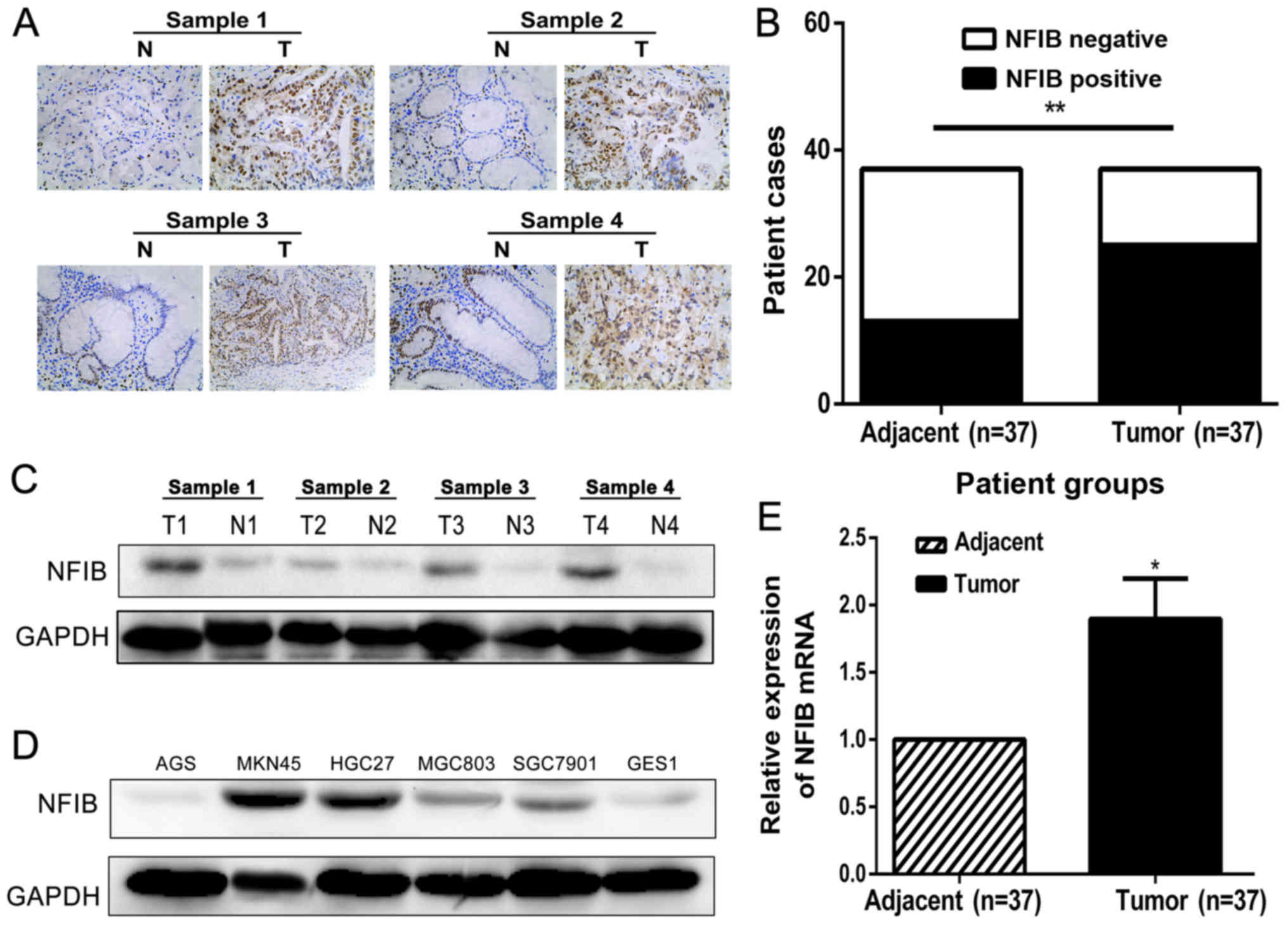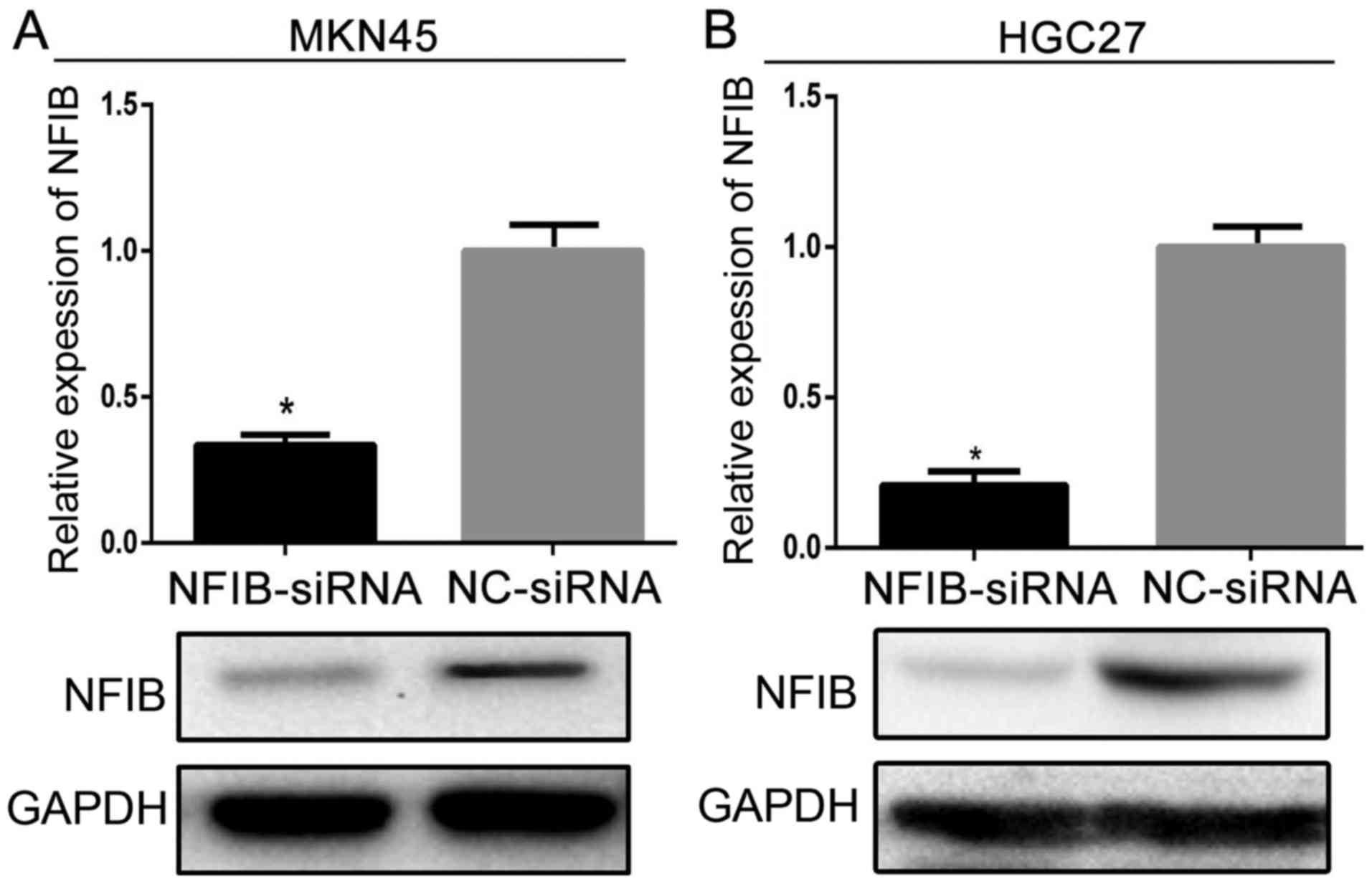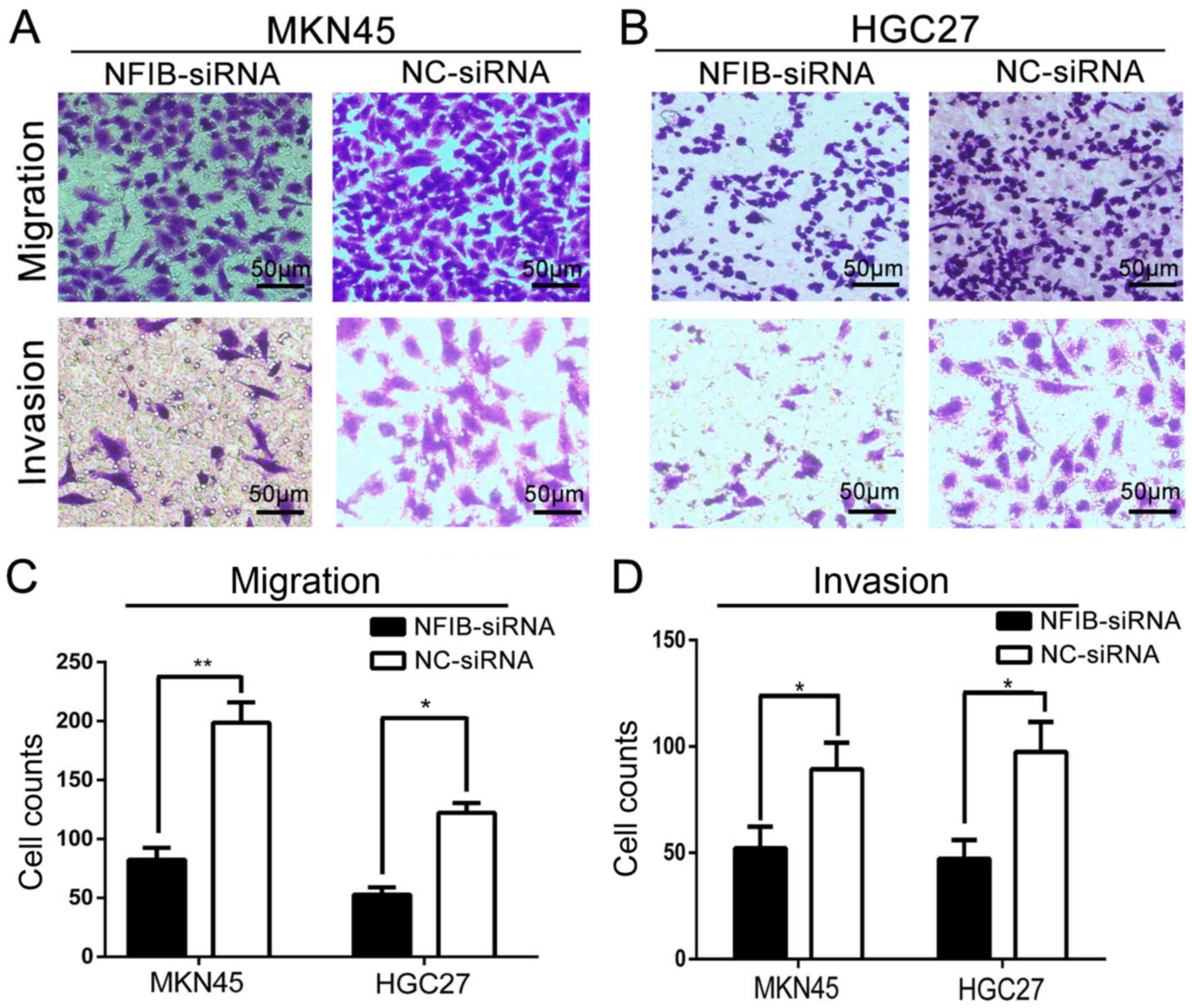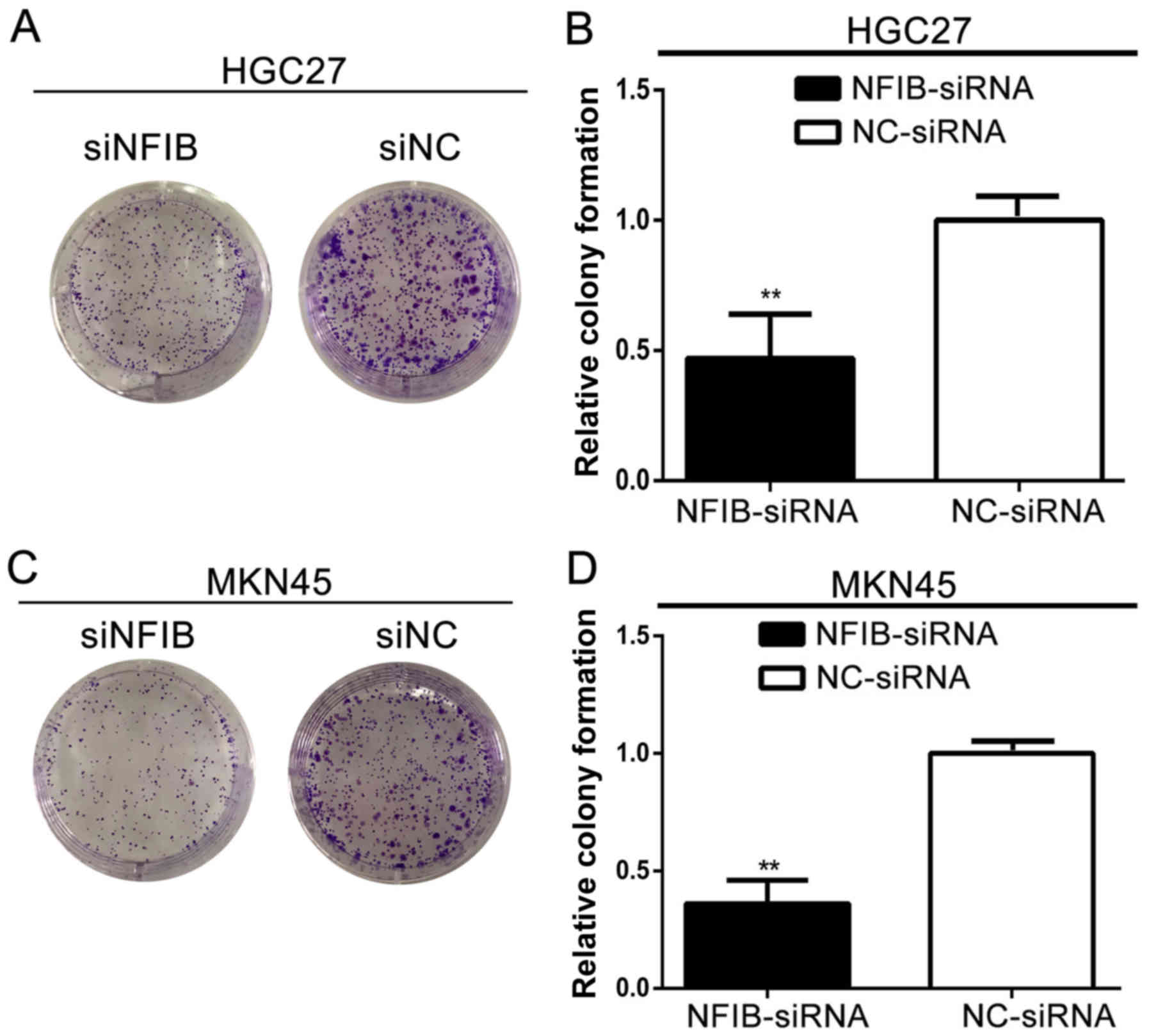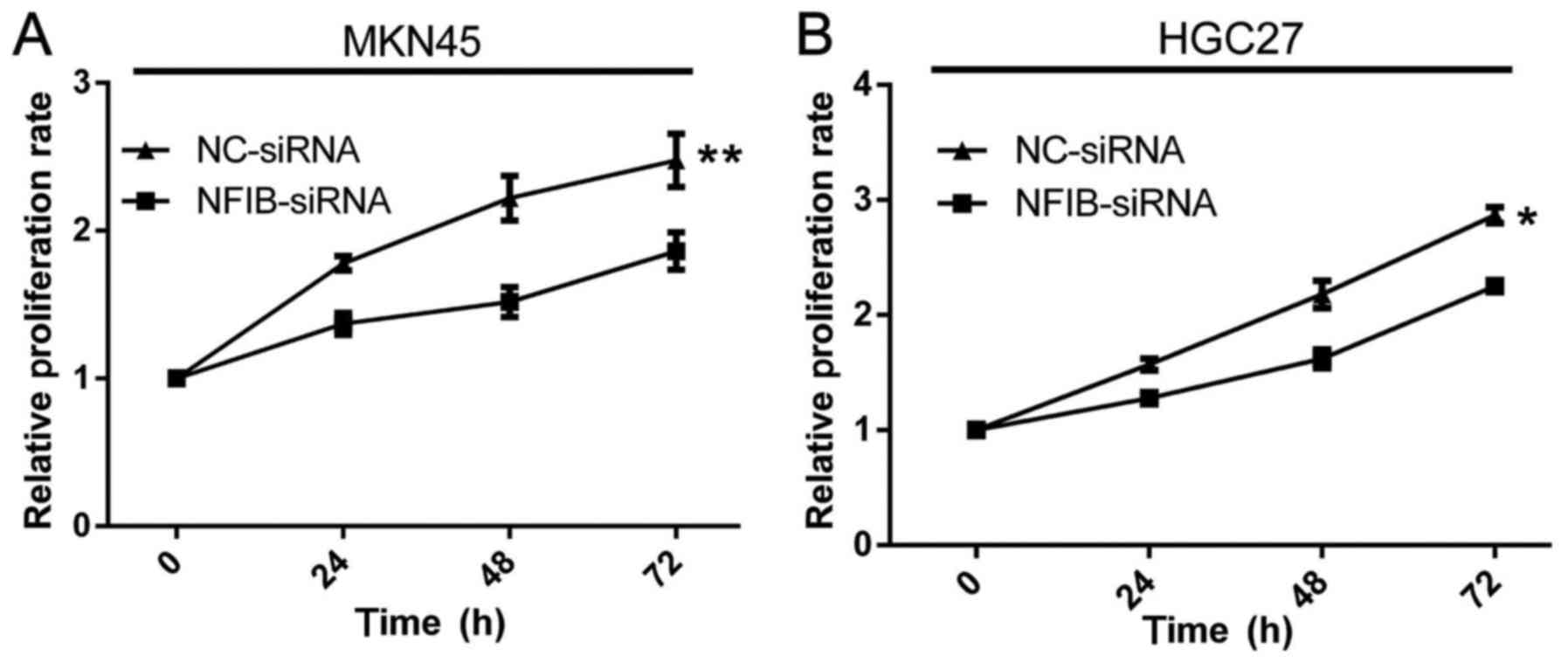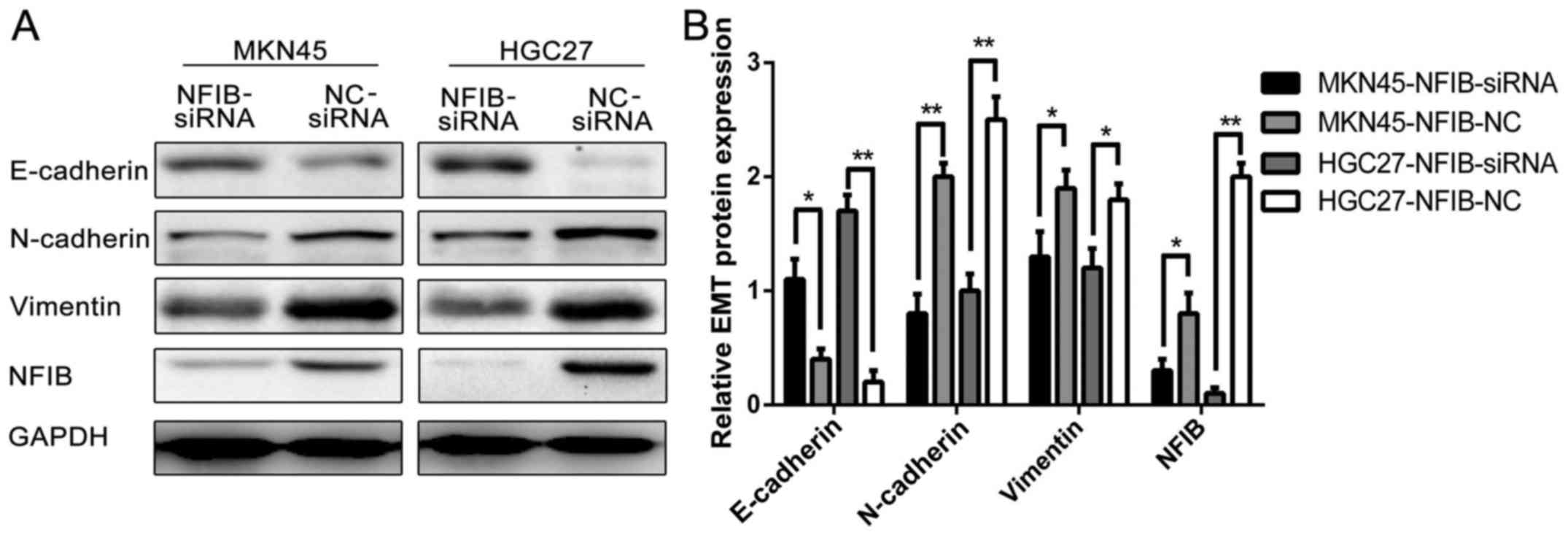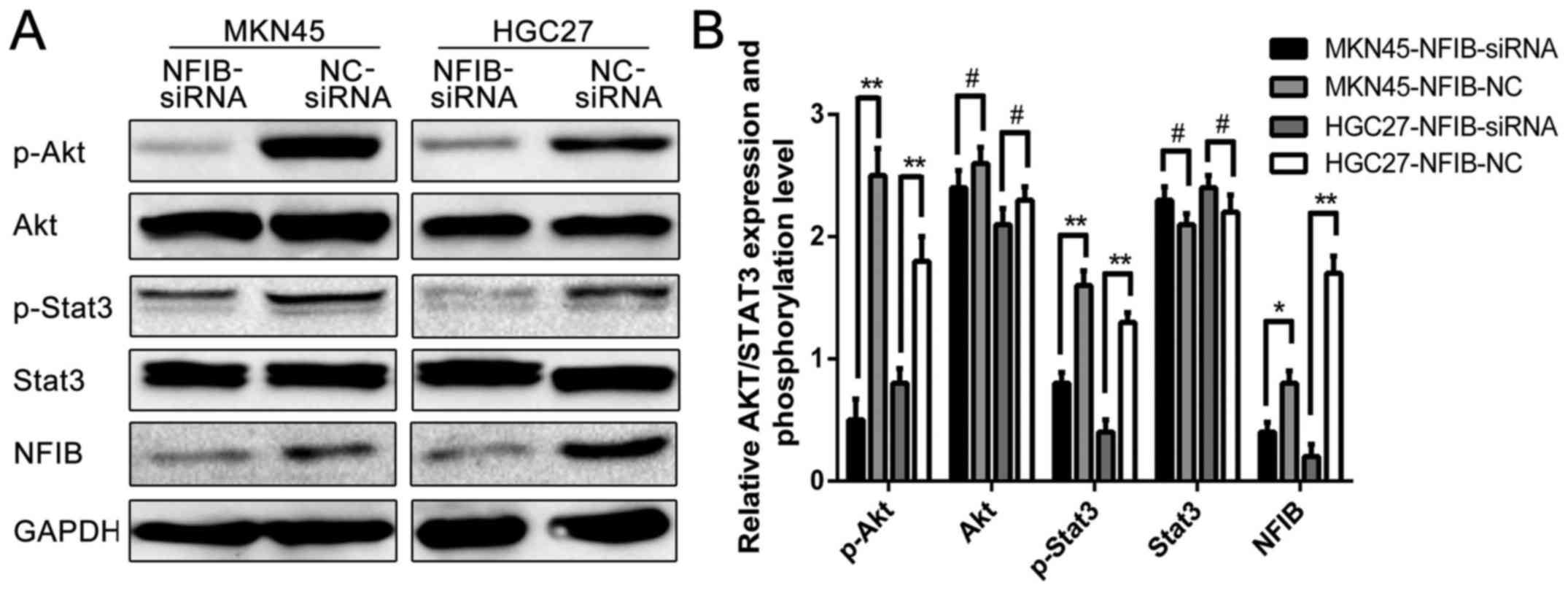|
1
|
Uyama I, Suda K and Satoh S: Laparoscopic
surgery for advanced gastric cancer: Current status and future
perspectives. J Gastric Cancer. 13:19–25. 2013. View Article : Google Scholar : PubMed/NCBI
|
|
2
|
Wu C, Ruan T, Liu W, Zhu X, Pan J, Lu W,
Yan C, Tao K, Zhang W and Zhang C: Effect and mechanism of curcumin
on EZH2-miR-101 regulatory feedback loop in multiple myeloma. Curr
Pharm Des. 24:564–575. 2018. View Article : Google Scholar : PubMed/NCBI
|
|
3
|
Abbas M, Habib M, Naveed M, Karthik K,
Dhama K, Shi M and Dingding C: The relevance of gastric cancer
biomarkers in prognosis and pre- and post-chemotherapy in clinical
practice. Biomed Pharmacother. 95:1082–1090. 2017. View Article : Google Scholar : PubMed/NCBI
|
|
4
|
Li Y, Guo G, Song J, Cai Z, Yang J, Chen
Z, Wang Y, Huang Y and Gao Q: B7-H3 promotes the migration and
invasion of human bladder cancer cells via the PI3K/Akt/STAT3
signaling pathway. J Cancer. 8:816–824. 2017. View Article : Google Scholar : PubMed/NCBI
|
|
5
|
Zhang LD, Chen L, Zhang M, Qi HJ, Chen L,
Chen HF, Zhong MK, Shi XJ and Li QY: Downregulation of ERRα
inhibits angiogenesis in human umbilical vein endothelial cells
through regulating VEGF production and PI3K/Akt/STAT3 signaling
pathway. Eur J Pharmacol. 769:167–76. 2015. View Article : Google Scholar : PubMed/NCBI
|
|
6
|
Baba Y, Tamura T, Satoh Y, Gotou M, Sawada
H, Ebara S, Shibuya K, Soeda J and Nakamura K: Panitumumab
interaction with TAS-102 leads to combinational anticancer effects
via blocking of EGFR-mediated tumor response to trifluridine. Mol
Oncol. 11:1065–1077. 2017. View Article : Google Scholar : PubMed/NCBI
|
|
7
|
Yu B, Lv X, Su L, Li J, Yu Y, Gu Q, Yan M,
Zhu Z and Liu B: MiR-148a functions as a tumor suppressor by
targeting CCK-BR via inactivating STAT3 and Akt in human gastric
cancer. PLoS One. 11:e01589612016. View Article : Google Scholar : PubMed/NCBI
|
|
8
|
Chen KS, Lim JWC, Richards LJ and Bunt J:
The convergent roles of the nuclear factor I transcription factors
in development and cancer. Cancer Lett. 410:124–138. 2017.
View Article : Google Scholar : PubMed/NCBI
|
|
9
|
Kim J, Geyer FC, Martelotto LG, Ng CK, Lim
RS, Selenica P, Li A, Pareja F, Fusco N, Edelweiss M, et al: MYBL1
rearrangements and MYB amplification in breast adenoid cystic
carcinomas lacking the MYB-NFIB fusion gene. J Pathol. 244:143–150.
2018. View Article : Google Scholar : PubMed/NCBI
|
|
10
|
Matuzelski E, Bunt J, Harkins D, Lim JWC,
Gronostajski RM, Richards LJ, Harris L and Piper M: Transcriptional
regulation of Nfix by NFIB drives astrocytic maturation within the
developing spinal cord. Dev Biol. 432:286–297. 2017. View Article : Google Scholar : PubMed/NCBI
|
|
11
|
Wu Y, Zhang J, Hou S, Cheng Z and Yuan M:
Non-small cell lung cancer: miR-30d suppresses tumor invasion and
migration by directly targeting NFIB. Biotechnol Lett.
39:1827–1834. 2017. View Article : Google Scholar : PubMed/NCBI
|
|
12
|
Livak KJ and Schmittgen TD: Analysis of
relative gene expression data using real-time quantitative PCR and
the 2-ΔΔCT method. Methods. 25:402–408. 2001. View Article : Google Scholar : PubMed/NCBI
|
|
13
|
Chen S, Zhang X, Peng J, Zhai E, He Y, Wu
H, Chen C, Ma J, Wang Z and Cai S: VEGF promotes gastric cancer
development by upregulating CRMP4. Oncotarget. 7:17074–17086.
2016.PubMed/NCBI
|
|
14
|
Wei YL, Dong HM, Xie ZF and Cai SX: Role
of reactive oxygen species in hypoxia-induced non-small cell lung
cancer migration. Zhonghua Yi Xue Za Zhi. 97:3174–3178. 2017.(In
Chinese). PubMed/NCBI
|
|
15
|
Han MH, Lee DS, Jeong JW, Hong SH, Choi
IW, Cha HJ, Kim S, Kim HS, Park C, Kim GY, et al: Fucoidan induces
ROS-dependent apoptosis in 5637 human bladder cancer cells by
downregulating telomerase activity via inactivation of the PI3K/Akt
signaling pathway. Drug Dev Res. 78:37–48. 2017. View Article : Google Scholar : PubMed/NCBI
|
|
16
|
Le Rhun E, Bertrand N, Dumont A, Tresch E,
Le Deley MC, Mailliez A, Preusser M, Weller M, Revillion F and
Bonneterre J: Identification of single nucleotide polymorphisms of
the PI3K-AKT-mTOR pathway as a risk factor of central nervous
system metastasis in metastatic breast cancer. Eur J Cancer.
87:189–198. 2017. View Article : Google Scholar : PubMed/NCBI
|
|
17
|
Ina K and Furuta R: Complete response of
metastatic gastric cancer to chemoimmunotherapy. Indian J Med Res.
146:1412017. View Article : Google Scholar : PubMed/NCBI
|
|
18
|
Li Z, Wang Q, Li B, Bai B and Zhao Q:
Influence of enhanced recovery after surgery programs on
laparoscopy-assisted gastrectomy for gastric cancer: A systematic
review and meta-analysis of randomized control trials. World J Surg
Oncol. 15:2072017. View Article : Google Scholar : PubMed/NCBI
|
|
19
|
Li Q, Li H, Jiang H, Feng Y, Cui Y, Wang
Y, Ji Y, Yu Y, Li W, Xu C, et al: Predictive factors of
trastuzumab-based chemotherapy in HER2 positive advanced gastric
cancer: A single-center prospective observational study. Clin
Transl Oncol. 20:695–702. 2018. View Article : Google Scholar : PubMed/NCBI
|
|
20
|
Kawasaki K, Takeuchi D, Kaneko T, Miura S,
Kamiya J, Miyahara Y, Yoshimura K and Ogata A: A case of advanced
gastric cancer responding to neoadjuvant chemotherapy with
docetaxel, cisplatin, and 5-fluorouracil, leading to a pathological
complete response. Gan To Kagaku Ryoho. 44:1017–1020. 2017.(In
Japanese). PubMed/NCBI
|
|
21
|
He J, Wang X, Cai J, Wang W and Qin X:
High expression of eIF3d is associated with poor prognosis in
patients with gastric cancer. Cancer Manag Res. 9:539–544. 2017.
View Article : Google Scholar : PubMed/NCBI
|
|
22
|
Sun GL, Li Z, Wang WZ, Chen Z, Zhang L, Li
Q, Wei S, Li BW, Xu JH, Chen L, et al: miR-324-3p promotes gastric
cancer development by activating Smad4-mediated Wnt/beta-catenin
signaling pathway. J Gastroenterol. 2017.
|
|
23
|
Becker-Santos DD, Lonergan KM,
Gronostajski RM and Lam WL: Nuclear factor I/B: A master regulator
of cell differentiation with paradoxical roles in cancer.
EBioMedicine. 22:2–9. 2017. View Article : Google Scholar : PubMed/NCBI
|
|
24
|
Dooley AL, Winslow MM, Chiang DY, Banerji
S, Stransky N, Dayton TL, Snyder EL, Senna S, Whittaker CA, Bronson
RT, et al: Nuclear factor I/B is an oncogene in small cell lung
cancer. Genes Dev. 25:1470–1475. 2011. View Article : Google Scholar : PubMed/NCBI
|
|
25
|
Fane ME, Chhabra Y, Hollingsworth DE,
Simmons JL, Spoerri L, Oh TG, Chauhan J, Chin T, Harris L, Harvey
TJ, et al: NFIB mediates BRN2 driven melanoma cell migration and
invasion through regulation of EZH2 and MITF. EBioMedicine.
16:63–75. 2017. View Article : Google Scholar : PubMed/NCBI
|
|
26
|
Fusco N, Geyer FC, De Filippo MR,
Martelotto LG, Ng CK, Piscuoglio S, Guerini-Rocco E, Schultheis AM,
Fuhrmann L, Wang L, et al: Genetic events in the progression of
adenoid cystic carcinoma of the breast to high-grade
triple-negative breast cancer. Mod Pathol. 29:1292–1305. 2016.
View Article : Google Scholar : PubMed/NCBI
|
|
27
|
Yoshida R, Sasaki T, Minami Y, Hibino Y,
Okumura S, Sado M, Miyokawa N, Hayashi S, Kitada M and Ohsaki Y:
Activation of Src signaling mediates acquired resistance to ALK
inhibition in lung cancer. Int J Oncol. 51:1533–1540. 2017.
View Article : Google Scholar : PubMed/NCBI
|
|
28
|
Mo D, Fang H, Niu K, Liu J, Wu M, Li S,
Zhu T, Aleskandarany MA, Arora A, Lobo DN, et al: Human helicase
RECQL4 drives cisplatin resistance in gastric cancer by activating
an AKT-YB1-MDR1 signaling pathway. Cancer Res. 76:3057–66. 2016.
View Article : Google Scholar : PubMed/NCBI
|
|
29
|
Ma DH, Li BS, Liu JJ, Xiao YF, Yong X,
Wang SM, Wu YY, Zhu HB, Wang DX and Yang SM: miR-93-5p/IFNAR1 axis
promotes gastric cancer metastasis through activating the STAT3
signaling pathway. Cancer Lett. 408:23–32. 2017. View Article : Google Scholar : PubMed/NCBI
|















